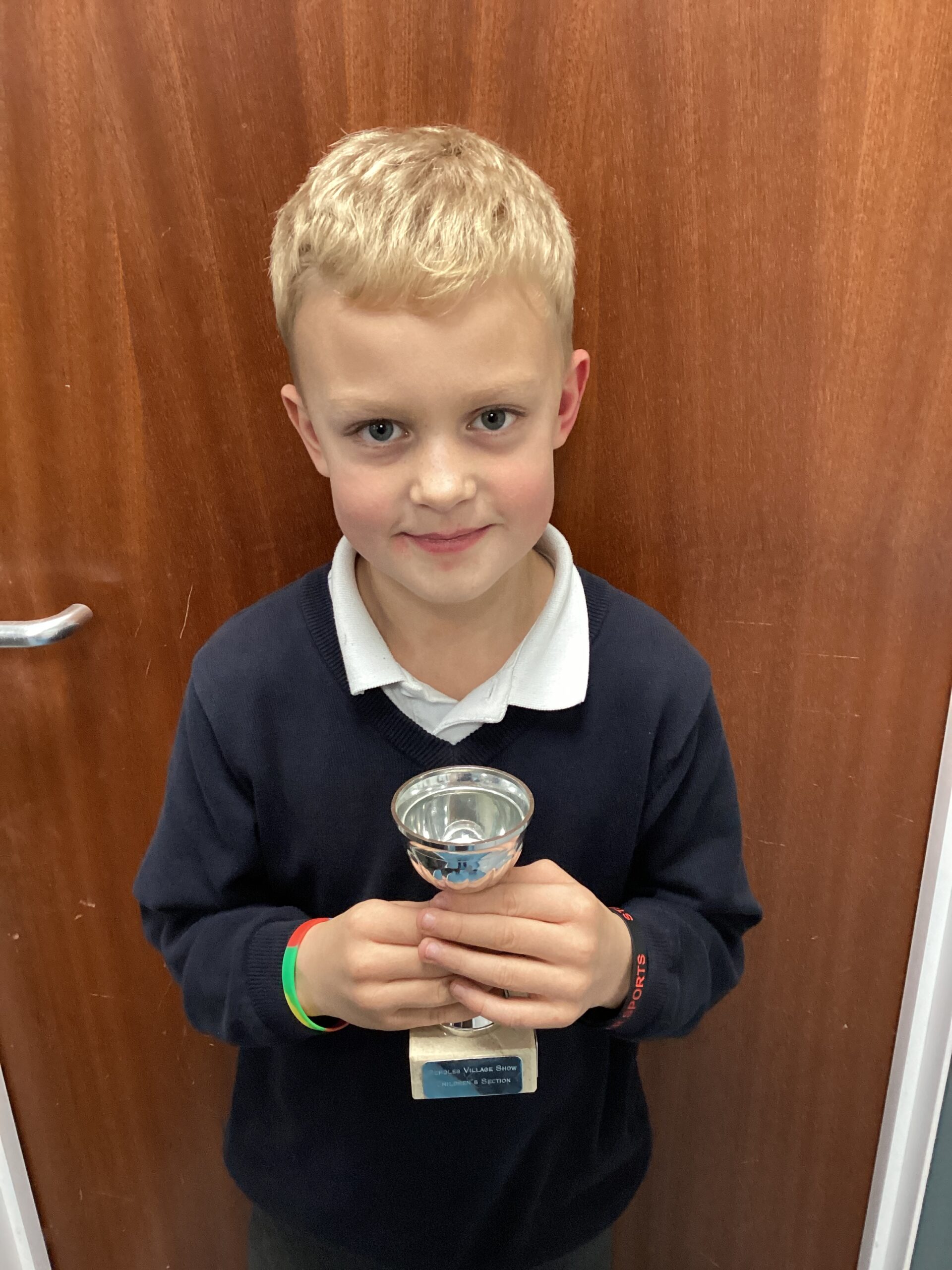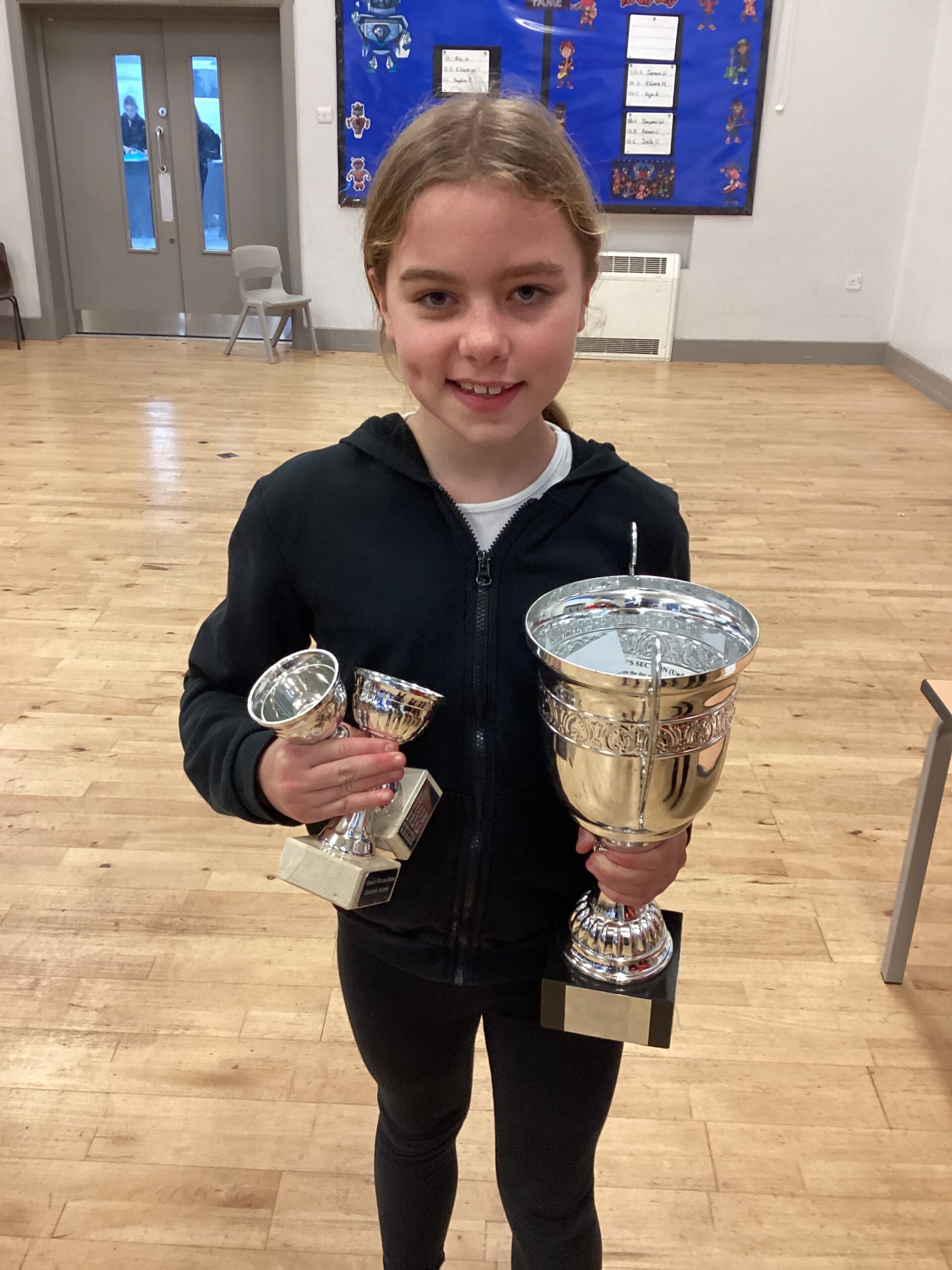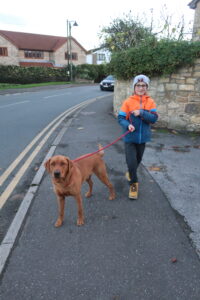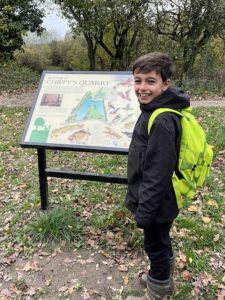Scholes Show Winners!
We were lucky enough to enjoy an assembly this week in which some winners from Scholes show were announced. This is a yearly event in which children from the local area are encouraged to participate. We had three very surprised winners in our school.
Emma won a huge trophy for the most points overall in the children’s sections, but she also won two more trophies for the best handwriting and baking – well done!
William won a lovely shiny trophy for the best rock painting. He created a circular design using metallic paint.
Clara won a trophy for the best handwriting in the under 8 group – well done.
Let’s hope more children join in next year – it sounds like a lot of fun. Well done again to the winners – keep polishing those trophies!



Living and Learning: Me and My Communities
What a fantastic week we’ve had! This is one of two Living and Learning themed weeks each year – this one’s a celebration of community.
Each day, the children have been learning about a different theme:
- Diversity
- Identity
- No room for Racism
- Same but Different
- We’ve had visitors from our community share their roles within the community of Scholes.
- Here are some children being active in the village community. There are vouchers to win for the best active photo!





New Junior Leadership Team
During the last week of term, our classes cast their votes for who they would like to represent their class on the JLT. I was absolutely overwhelmed by the number of children that wrote speeches – these were well written, full of ideas and very persuasive!
The votes were counted and the new members were announced in assembly – each child received their shiny JLT badge.
Here are our new members:
5,6A – Sam
5,6B – Olive
5,6C – Layla
3,4A – Archie
3,4B – Olivia
3,4C – Archie
2C – Abby
1,2B – Faith
1A – Eti
Well done to each of you. I’m looking forward to working with you this year and can’t wait to get started.
3,4 A Class News
It’s been another busy week here at Scholes.
Alongside our usual learning, we completed quizzes to end our units in Science and Topic. We also had some ‘dropdown’ sessions on Wednesday where we recapped some of our Geography work from last year.
Yesterday, many of the class put themselves forward for JLT and gave speeches, before taking part in a democratic vote. A worthy winner was elected, though it has to be said that there were lots of fantastic candidates so well done to everyone who gave it a go.
We ended a successful week by winning the choice chip trophy once more! Have a lovely half-term break everyone.
3,4 A Class News
We’ve had a busy week in 3,4 A!
In Reading and Writing, we have been looking at discussion texts and the features a good one should include such as varied sentence starters and ambitious vocabulary.
In History, we have continued the discussion theme by looking at Elgin’s marbles and whether or not they should be housed in The British Museum.
In Science, we used our classification skills again but this time to sort different types of leaf by certain characteristics.
In Maths, we are continuing to work hard on our number facts and times tables.
You can help at home by practising on TT Rockstars and reading regularly. We enjoy discussing our home reading and showing off our reading records in Book Club on Wednesdays.
Well done on a super week everyone and thank you also for the Harvest donations.
A little glimpse of our week
Week six has been and gone. The weeks have been flying especially because 3,4 are very impressive in their attitude towards learning. In science, we have all created our own classification key to identify different leaves. Perhaps if you go for an Autumn walk you can ask your child to identify the tree a leaf is from? Or encourage them to tell you you some facts about how to describe the leaf: lobes, teeth, veins or leaflets. In Maths, we have focused on number facts, place value and column addition. In our spelling lesson, we have looked at suffixes (different endings) that can be added to a root word (e.g. hope-hoping, hoped). The sun has continued to be on our side so we have been making the most of developing our basketball skills outside.





Junior Leadership Team Elections
It’s that time of year again where we vote for new members of the Junior Leadership Team. Do you fancy being the representative for your class? Can you listen well to other people’s ideas and opinions? Do you want to make a difference in our school? Then this is the role for you.
Make sure you take a look at this weeks homework – you will need to get writing a speech. It will need to convince others that you are the best candidate – there will be lots of competition! Make sure you mention your strengths, qualities, what you’d like to change in school and any other useful skills you might have.
Good luck!
3,4C Class News
Over the last week, we have been working really hard in 3,4C.
In History, we have researched information about Ancient Greek inventions and creations. They created theatre, introduced democracy and invented the Olympic Games. We have also been debating if we would rather be a Spartan or an Athenian in Ancient Greek times.
In Reading, we have looked at different examples of discussion texts, considering the arguments for and against wearing school uniform. Next week, we are going to write our own discussion text.
We are continuing to work on our number facts and times tables using Numbots and Times Tables Rock Stars. You can help at home by encouraging your child to count, recall number facts and log on regularly.
As a class, we collected many items for our Harvest collection – thank you to everyone who donated.
Well done 3,4C!
3,4A Science
Science: Living things and their habitats
In 3,4A we also enjoyed our hunt around the school grounds for invertebrates. Once back in class, we shared our findings and used the data to create bar graphs.


A hunt around school
As biologists, we searched the school grounds for invertebrates. We had an enjoyable time turning over stones, logs and plant pots to find living things. Once we had gathered our data and analysed it, we turned it into a bar graph. Can you see what we found?


Here is a glimpse of our spelling and PE lesson too. We were focusing on different suffixes in spelling and played the game four-square in PE.


